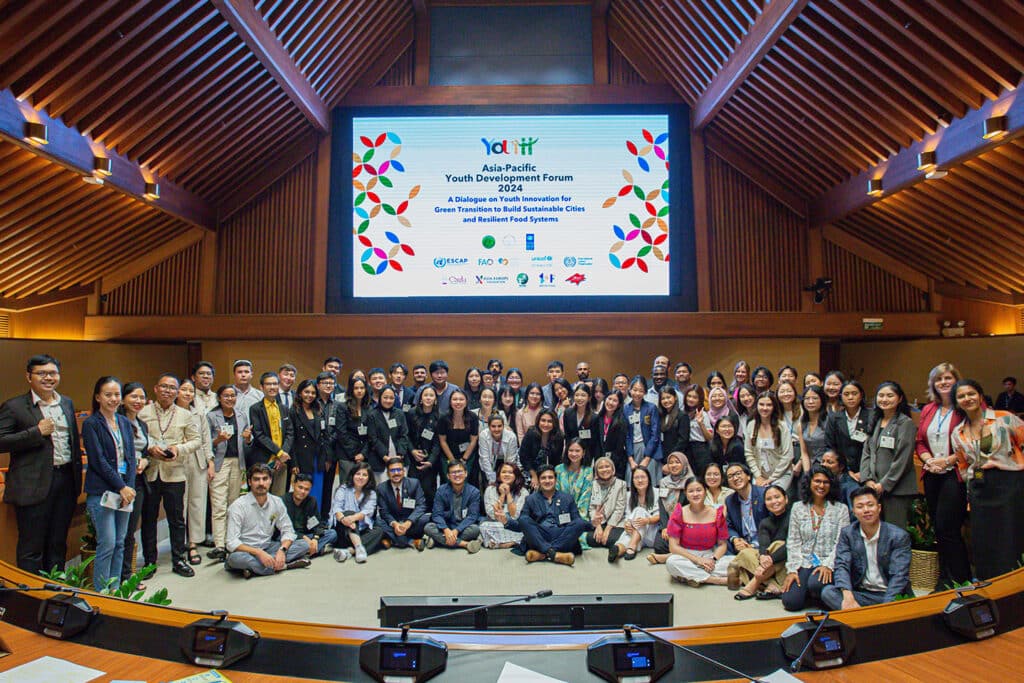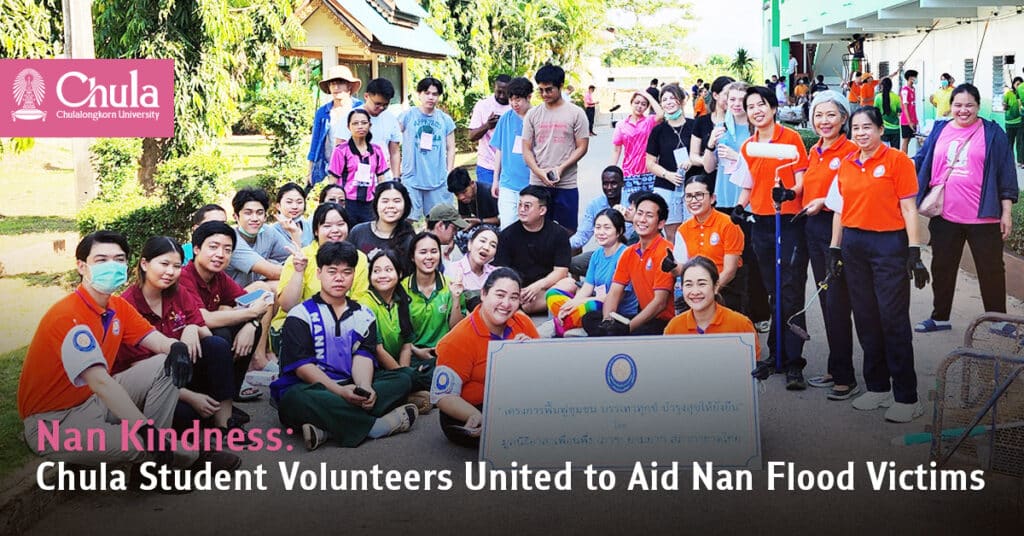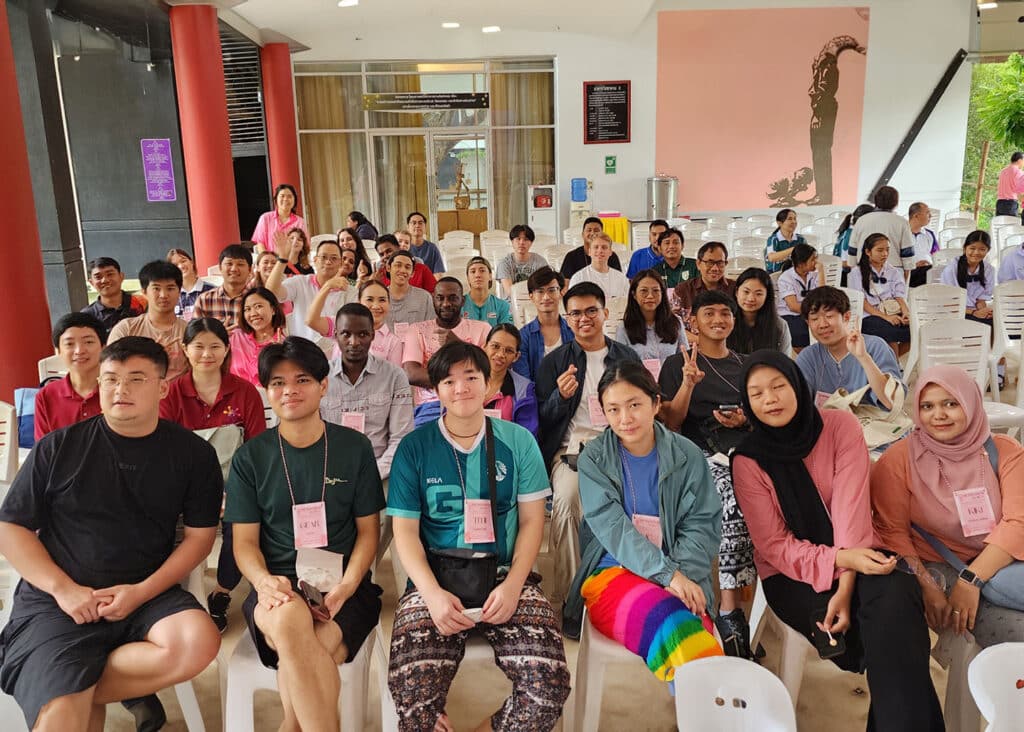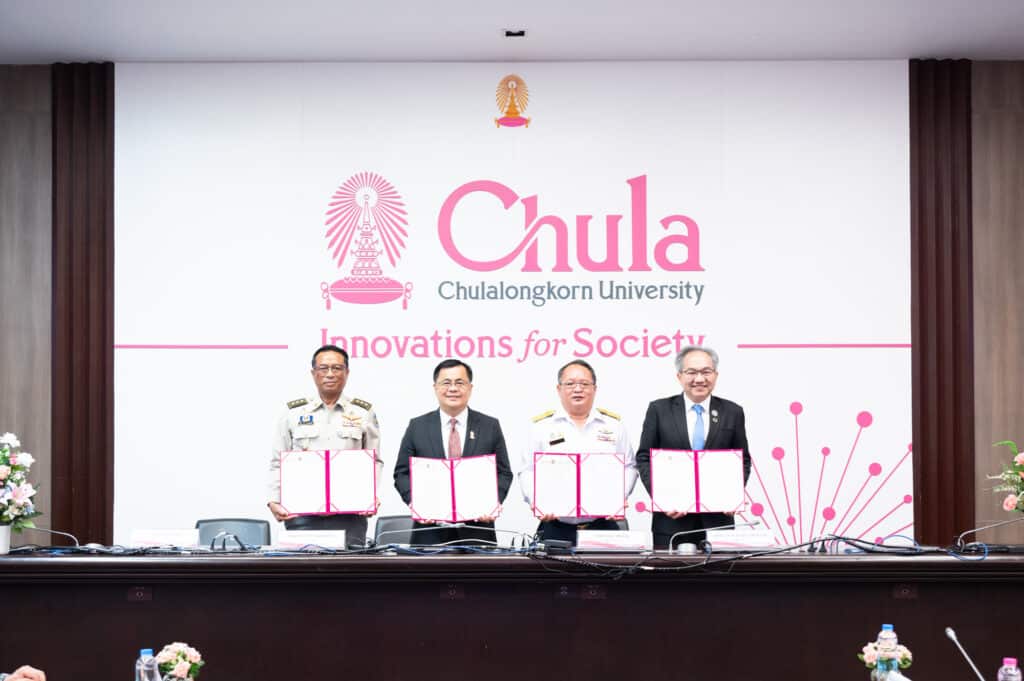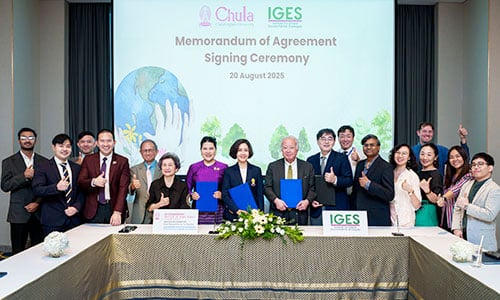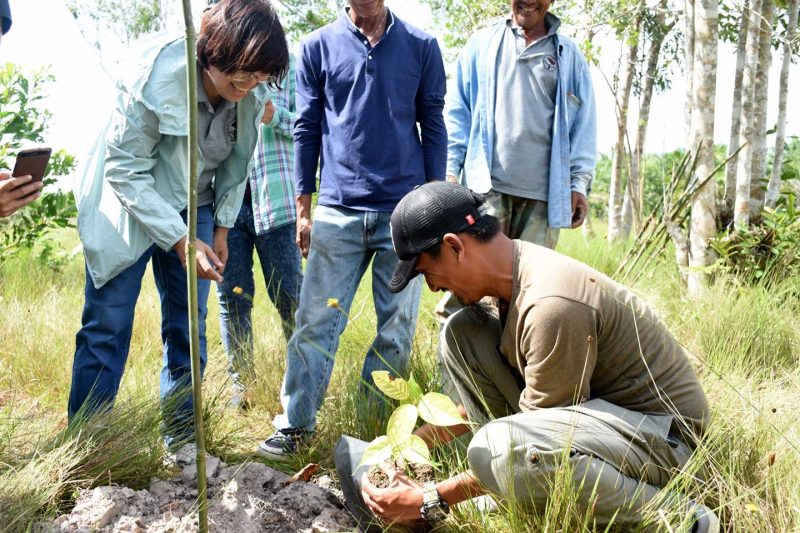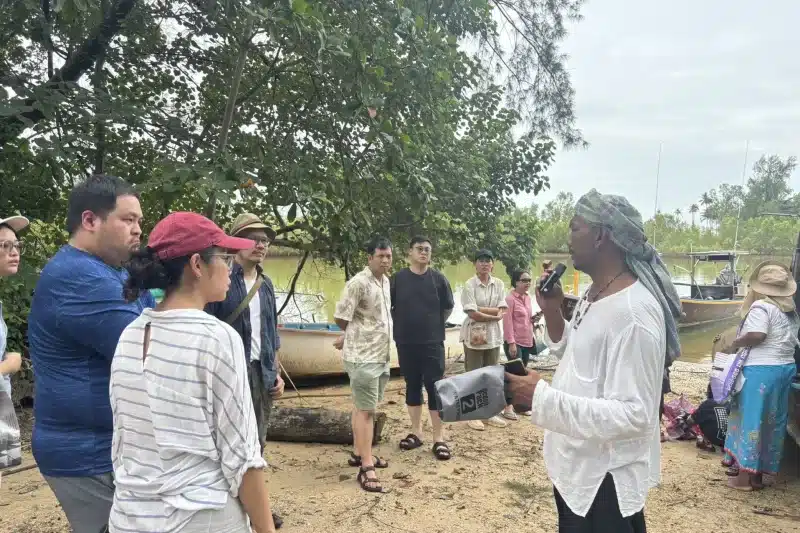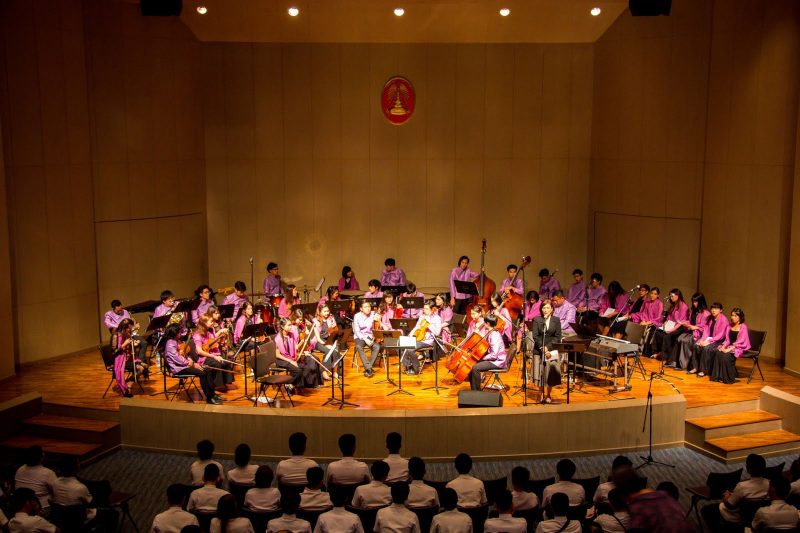Collaboration with NGOs to Tackle SDGs through Various Projects and Activities of Chulalongkorn University 2024-2025
Photo by Vardan Papikyan on Unsplash
Chulalongkorn University places great importance on fostering collaboration with non-governmental organizations (NGOs) to advance the United Nations Sustainable Development Goals (SDGs). The University integrates academic expertise with social engagement through a wide range of initiatives, including student volunteering programmes, research and development projects, and the creation of educational resources aimed at addressing social and environmental challenges.
Chulalongkorn University works in partnership with both national and international non-profit networks to tackle key issues such as reducing inequality, promoting inclusive education, protecting the environment, addressing climate change, and supporting sustainable community development. These collaborations encourage students, faculty, and staff to actively participate as vital contributors in building a more equitable and sustainable society in cooperation with all sectors.
First Asia-Pacific Youth Development Forum Unites 220+ Young People and Partners to Champion Green Innovation and Sustainable Development
On October 16, 2024, The Asia-Pacific Youth Development Forum (APYDF) 2024, hosted at the United Nations Conference Center in Bangkok, concluded, bringing together over 220 young people, governments, civil society, the private sector, and other youth empowerment partners from 23 countries. Under the theme “Building Sustainable Cities and Resilient Food Systems,” the Forum provided a platform for young innovators to present actionable solutions that address the most pressing challenges of climate change and urbanization in the Asia-Pacific region.
The two-day event featured insightful discussions on green employment and entrepreneurship, and sustainable development, with participants offering recommendations to foster climate resilience and ensure food security. A central highlight was the presentation of youth-driven solutions to transform cities into sustainable and livable environments. These initiatives, aligned with key Sustainable Development Goals (SDGs), focused on addressing the environmental degradation and economic challenges faced by vulnerable communities, including marginalized youth.
APYDF 2024 emphasized the importance of multi-stakeholder collaboration and partnerships to advance the green transition, which leads to meaningful youth engagement, creating green jobs, promoting low-carbon economies, and implementing sustainable policies and practices across the region.
The Forum was co-hosted by the United Nations Development Programme (UNDP), All-China Youth Federation (ACYF), Ministry of Social Development and Human Security of Thailand, World Youth Development Forum (WYDF) Secretariat, and key partners including the United Nations Economic and Social Commission for Asia and the Pacific (ESCAP), Food and Agriculture Organization (FAO), and the United Nations Children’s Fund (UNICEF), The Chulalongkorn University, and the Asia-Europe Foundation (ASEF).
Chulalongkorn University and Its Partners Drive SDGs into Action through the “Nan Kindness” Mission
As the world faces escalating challenges from climate change and increasingly severe natural disasters, Chulalongkorn University has reaffirmed its leadership not only in academic excellence but also in tangible social responsibility. Through the project “Nan Kindness: Chula Students United to Aid Nan Flood Victims,” held from October 17–20, 2024, in Nan Province, the university demonstrated its strong commitment to humanitarian action and sustainable development.
This initiative highlights a strategic collaboration between academia and nonprofit organizations (NPOs). Spearheaded by the Office of Student Affairs and the Regional Learning Network Center of Chulalongkorn University, the project was carried out in partnership with the Friends in Need (of “PA”) Volunteers Foundation, Thai Red Cross Society Together, they provided emergency relief — including food, medical supplies, and temporary shelters — to communities severely affected by the floods.
What set this project apart from conventional relief operations was its integration with the United Nations Sustainable Development Goals (SDGs). By leveraging the university’s volunteer network, which included 33 participants — 26 international and 7 Thai students, the project directly supported SDG 2 (Zero Hunger) and SDG 10 (Reduced Inequalities) through the provision of aid and emotional support to flood victims.
In addition, the team conducted field research to collect data for long-term recovery planning, aligning with SDG 11 (Sustainable Cities and Communities). The initiative also served as a platform for educational development (SDG 4: Quality Education), enabling students to gain real-world experience, enhance intercultural communication skills, and cultivate what Associate Professor Dr. Sukanya Sompiboon described as a “philanthropic mindset.”
According to Dr. Sukanya, “This was more than just a school-painting or donation project — it was a profound engagement with the community. Students learned to care deeply, communicate across cultures, and give back meaningfully.” The project also aimed to empower Thai students with limited English proficiency by encouraging them to communicate confidently in an international environment, fostering open-mindedness and collaboration.
The “Nan Kindness” project thus stands as a clear testament to how Chulalongkorn University transforms its SDG mission from policy into practice, creating a tangible and lasting social impact through strong partnerships with NPOs. By nurturing responsible, empathetic, and globally conscious citizens, the university continues to drive sustainable change — from compassion to community resilience. [ https://www.chula.ac.th/en/news/196365/ ]
Chulalongkorn University Partners with Key Agencies to Advance Wildlife Conservation for Sustainable Development
Chulalongkorn University continues to drive forward the United Nations Sustainable Development Goals (SDGs), particularly SDG 15: Life on Land, through collaborative research and knowledge exchange for wildlife conservation. On March 3, 2025, the University signed a Memorandum of Understanding (MOU) with three major partners — the Department of National Parks, Wildlife, and Plant Conservation, the Zoological Park Organization of Thailand under the Royal Patronage, and the National Science and Technology Development Agency (NSTDA) — at the Chamchuri 4 Building, Chulalongkorn University.
The partnership aims to strengthen cooperation among academic institutions and non-profit organizations in conserving biodiversity and protecting endangered species. Under this collaboration, Chulalongkorn University serves as the central hub for academic integration and human resource development, while the Department of National Parks and the Zoological Park Organization provide biological samples and field data. NSTDA, through its Biotechnology and Omics Centers, contributes advanced biotechnological innovations such as genomics, proteomics, and metabolomics to support genetic diversity analysis, breeding strategies, and wildlife health improvement.
This initiative demonstrates how higher education institutions can work hand-in-hand with public and non-profit agencies to create real-world impact through research, innovation, and educational development. The collaboration will also provide opportunities for students and researchers to engage in conservation projects, field studies, and scientific volunteering, fostering awareness and participation in sustainable environmental management. Ultimately, the partnership represents a significant step toward integrating science, education, and social responsibility to safeguard Thailand’s natural heritage and promote long-term ecological balance. [ https://www.chula.ac.th/en/news/223953/ ]
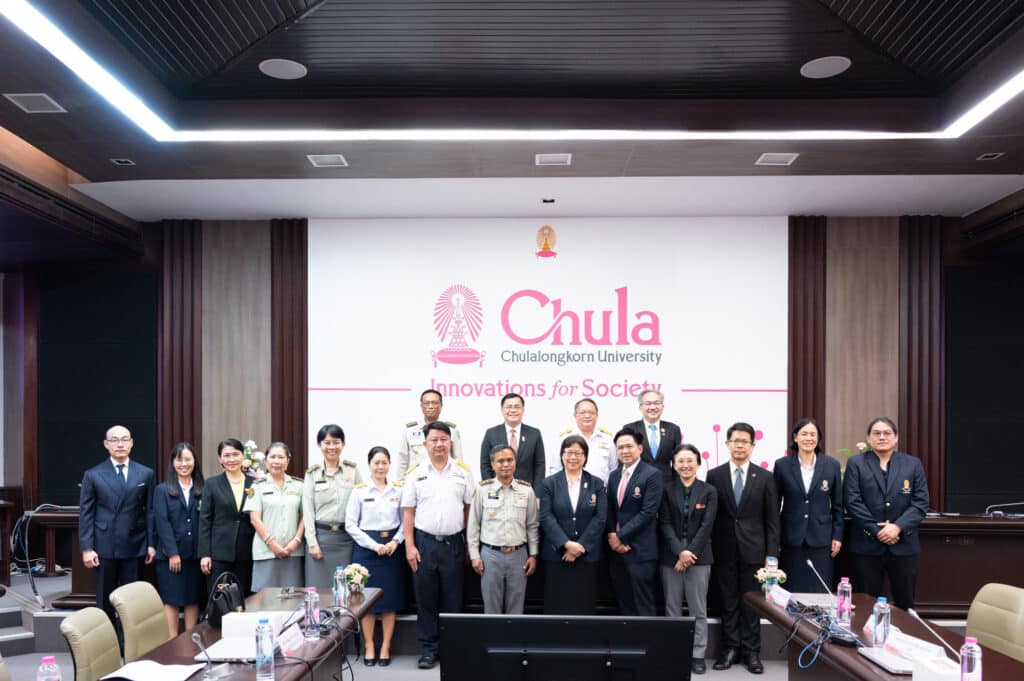
Chulalongkorn University partners with IGES Japan to advance comprehensive ASEAN environmental policies
On August 20, 2025, Chulalongkorn University, through its Institute of Asian Studies, signed a Memorandum of Understanding (MOU) with the Institute for Global Environmental Strategies (IGES), a Japan-based non-governmental organization (NGO) supported by the Government of Japan. The collaboration aims to drive the development of environmental policies and sustainable urban development across the ASEAN region.
This partnership encompasses joint research programmes and policy development initiatives focusing on climate resilience and the circular economy. It also includes the organization of regional policy dialogues and the creation of environmental data platforms to support decision-making among ASEAN governments.
The initiative demonstrates Chulalongkorn University’s active collaboration with an NGO in promoting the Sustainable Development Goals (SDGs), particularly through research-based cooperation and the development of educational and policy resources that contribute to sustainable urban management. The activities involve identifying key environmental challenges, co-developing strategic and policy frameworks, and supporting adaptive management for regional sustainability. [ https://www.iges.or.jp/en/news/20250821 ]
By
- Office of Student Affairs, Chulalongkorn University
- Office of International Affairs and Global Network, Chulalongkorn University
- Center of Learning for the Region, Chulalongkorn University
- Institute of Asian Studies, Chulalongkorn University
Related SDGs
Others
Enjoy Music at Chula
Thai and Western, traditional and contemporary offerings find a large and enthusiastic audience

